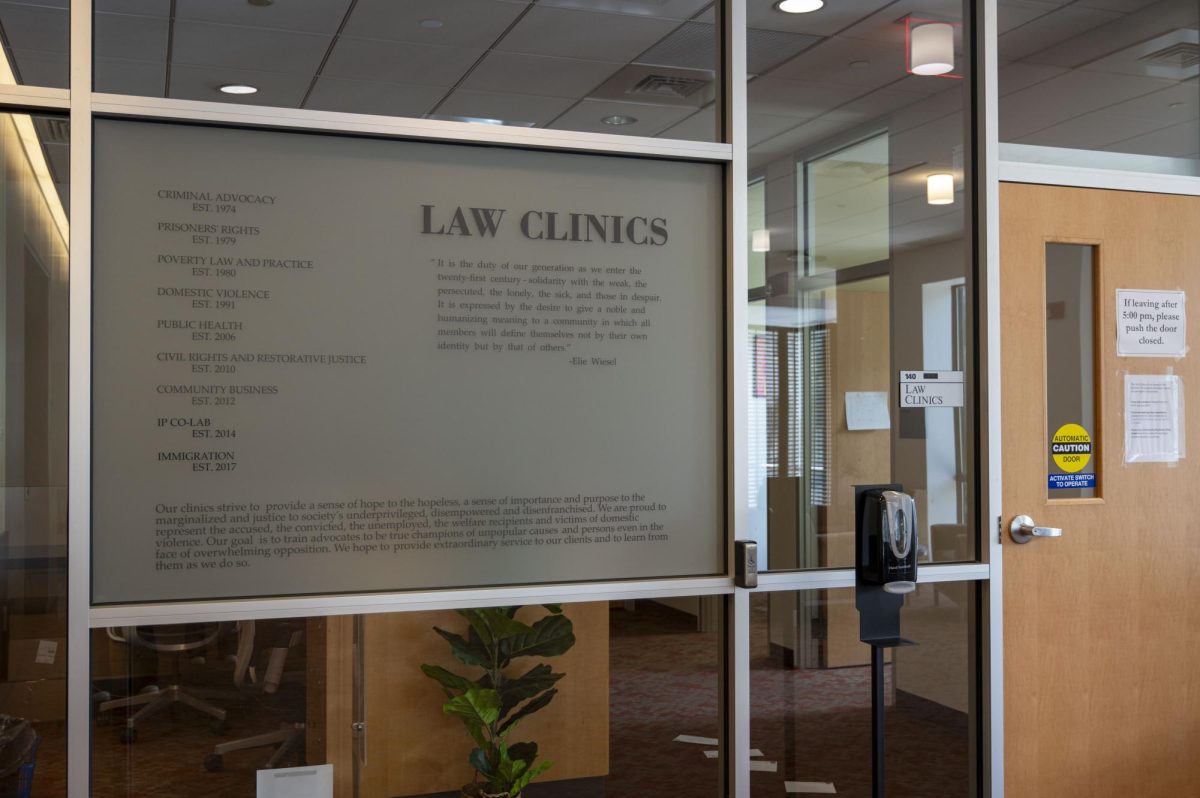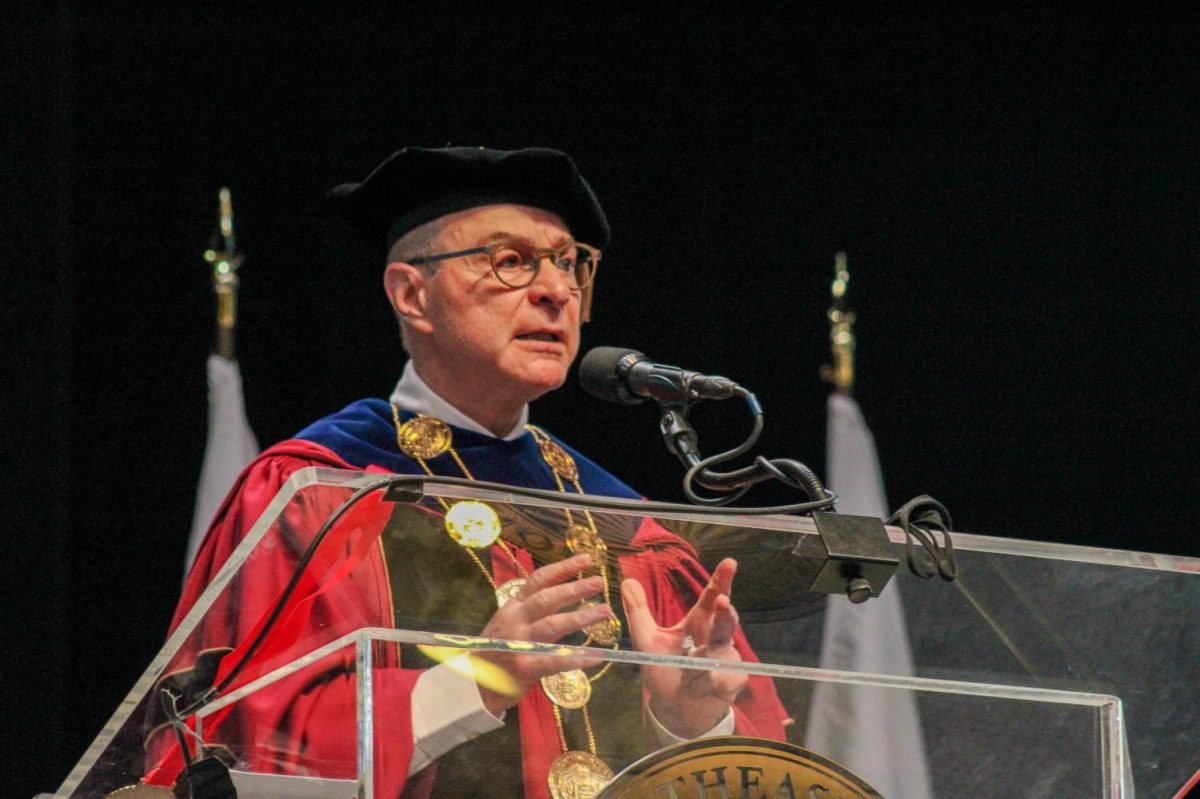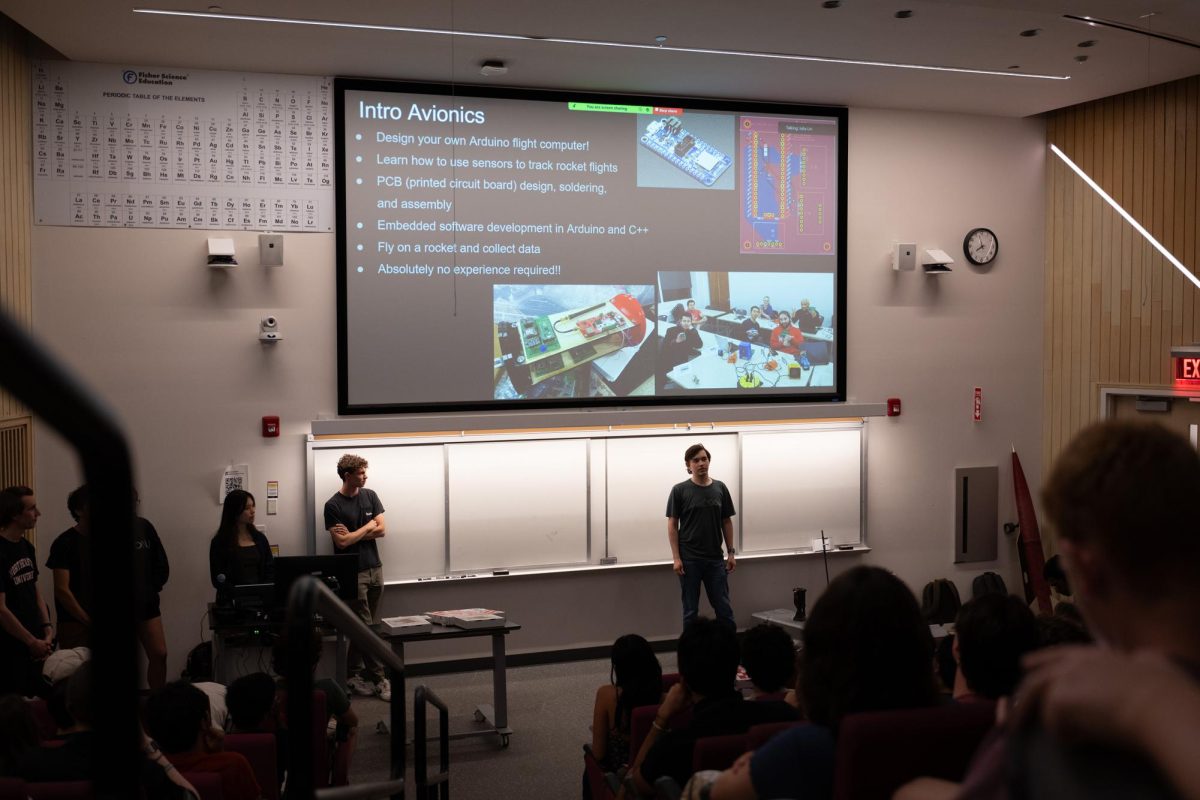By Matt Collette
During yesterday’s Faculty Senate meeting, the issue of creating a standard approach to academic honesty and how to deal with violations of that policy emerged, with faculty debating whether to create a system and how one would work.
The subject of academic policy was the source of heavy debate, prompted by a proposed resolution from the Committee on Academic Policy, chaired by Malcolm Hill, an earth and environmental sciences professor and former vice provost for undergraduate education. The resolution called for a universal approach to academic honesty.
“The sense is that there is really nothing the faculty can point to if [they] find any problem of academic honesty,” Hill said.
The committee found that nearly every department and professor deals with issues pertaining to academic honesty differently. Many professors feared a centralized system would reduce the freedom they had to deal with cheating. Today, the primary document defining academic honesty is an honor code drafted by the Student Government Association (SGA) in 2003.
“I personally want that degree of latitude,” Hill said. “Clearly faculty are using a lot of discretion today, so clearly that is what we want.”
During the 2005-06 academic year, only 32 of the more than 3,000 cases the Office of Student Conduct and Conflict Resolution (OSCCR) dealt with academic honesty, the Committee on Academic Policy found. When a student is referred to OSCCR for an academic honesty offense the standard punishment is a deferred suspension.
The Committee on Academic Policy proposed creating a centralized record system to track cheaters, similar to systems already established at Northwestern University and Pennsylvania State University.
Hill said the new system would create a more formal interaction between the faculty so that repeat offenders will not be able to repeatedly pass off work that is not their own.
Barbara Waszczak, a professor in the Bouv’eacute; College of Health Sciences, said the pharmacy department created a centralized system to track academic dishonesty in which professors turn in forms to the dean’s office, which keeps them on file.
“The reason we have it is because students asked us to do it,” Waszczak said.
Provost Ahmed Abdelal was surprised to hear about the pharmacy department’s policy, which he said had not been approved by the university.
“I was not cognizant of it personally,” Abdelal said after the meeting. “Any policy regarding student conduct needs to be approved by the Faculty Senate.”
Some in the Senate feared that a system to track issues relating to academic honesty would become bureaucracy.
“Would this new system just be OSCCR Junior?” asked Laura Lewis, chair of the chemical engineering department, expressing a fear of many at the meeting.
Chris Hopey, dean and vice president of the School of Professional and Continuing Studies, said he doesn’t forsee a problem.
“When you accuse someone of such a thing, that could get them kicked out of the university or worse, then it should be bureaucratic. There should be a system,” he said.
Other faculty members, like history professor Gerald Herman, said a new centralized system was a way to help students in similar ways to the new warning program for failing students, the Faculty-Advisor Communication Tool.
“This is a way of helping students,” he said. “If they are continuing and repeating a behavior it would actually be nice if someone who knew them over a course of semesters [sat down and talked to them]. That would be a good way.”
Another major point of discussion was when a student would be flagged for a violation and be put into the proposed system. Most agreed that suspicion alone would not warrant a student being flagged; he or she would have to be convicted of a crime, which, in most cases, should already lead to punishment.
As the meeting neared adjournment, Alan Zaremba, a communication studies professor on the Committee on Academic Policy, stressed that the debate should not focus on details of a centralized system, but whether or not one should be implemented.
“If we approve this resolution, we are not approving any set of details but rather that there could be,” Zaremba said.
The Faculty Senate adjourned without voting on the resolution, though Abdelal called the meeting “a very healthy dialogue.”
“I think it’s obviously a very serious issue that the faculty [is] always concerned about,” Abdelal said.








